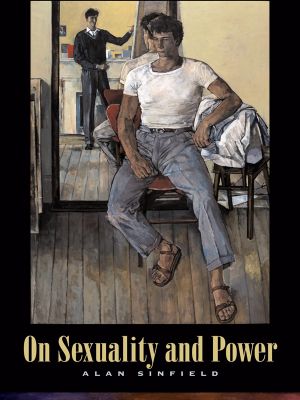On Sexuality and Power

- Authors
- Sinfield, Alan
- Publisher
- Columbia University Press
- Tags
- literary criticism , general , lit000000 , gay and lesbian , lit004160
- ISBN
- 9780231508667
- Date
- 2004-12-22T00:00:00+00:00
- Size
- 1.37 MB
- Lang
- en
This book argues that hierarchies in interpersonal relations are inextricably linked to the main power differentials of our social and political life (gender, class, age, and race); therefore it is not surprising that they govern our psychic lives. Recent writing enables an exploration of their positive potential, especially in fantasy, as well as their danger. The book focuses on the writing of the last thirty years, revisiting also Whitman, Wilde, Mann, Forster, and Genet, and reassessing the very idea of a gay canon.
It is widely supposed that the most suitable partner will be someone very much like oneself; gay fiction and cinema are often organized around this assumption. Nonetheless, power differentials are remarkably persistent—as well as sexy. What are the personal and political implications of this insight? Sinfield argues that hierarchies in interpersonal relations are continuous with the main power differentials of our social and political life (gender, class, age, and race); therefore it is not surprising that they govern our psychic lives. Recent writing enables an exploration of their positive potential, especially in fantasy, as well as their danger. On Sexuality and Power focuses on the writing of the last thirty years, revisiting also Whitman, Wilde, Mann, Forster, and Genet, and reassessing the very idea of a gay canon.
This book argues that hierarchies in interpersonal relations are inextricably linked to the main power differentials of our social and political life (gender, class, age, and race); therefore it is not surprising that they govern our psychic lives. Recent writing enables an exploration of their positive potential, especially in fantasy, as well as their danger. The book focuses on the writing of the last thirty years, revisiting also Whitman, Wilde, Mann, Forster, and Genet, and reassessing the very idea of a gay canon.